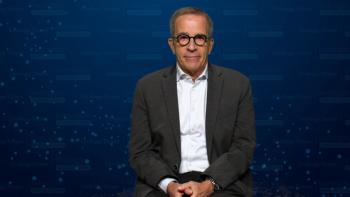
Investigator Perspectives


First-Line Therapy for nmCSPC: Expert Perspectives is an educational video interview series that explores the evolving management of high-risk, biochemically recurrent prostate cancer. Featuring insights from leading urologic oncologist Stephen J. Freedland, MD, the program examines clinical data, emerging standards of care, and real-world strategies for integrating enzalutamide and other androgen receptor pathway inhibitors into patient management. Through focused, evidence-based discussions, the series aims to help urologists and oncologists optimize therapeutic decisions and improve outcomes for men facing recurrent prostate cancer.
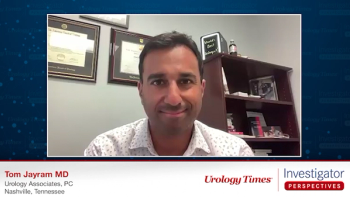
An expert would summarize that bladder cancer management is evolving from traditional radical surgery toward more personalized, less invasive approaches—highlighting promising therapies like TARA-002 that activate broad immune responses, address both BCG-unresponsive and BCG-naive patients amid shortages, and offer familiar, manageable administration—while underscoring the critical need to carefully interpret diverse clinical trial data, optimize treatment sequencing and combinations, and integrate advanced diagnostics to improve outcomes, preserve bladder function, and reduce overtreatment in this complex disease landscape.
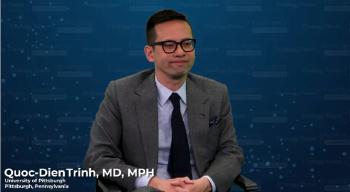

Neal D. Shore, MD, FACS, discusses how achieving ultra-low prostate-specific antigen (PSA) levels (<0.02 ng/mL) in patients with metastatic hormone-sensitive prostate cancer (mHSPC) treated with darolutamide plus androgen deprivation therapy in the ARANOTE trial correlates with improved clinical outcomes including progression-free survival.
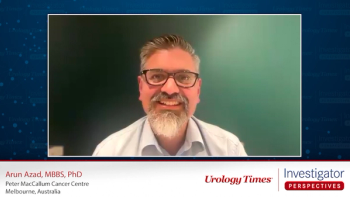
Arun Azad, PhD, MBBS, discusses how matching-adjusted indirect comparison (MAIC) methodology enables the comparison of enzalutamide and darolutamide in metastatic hormone-sensitive prostate cancer (mHSPC) treatment, revealing both agents significantly improve outcomes when added to androgen deprivation therapy (ADT), with clinical decision-making guided by efficacy differences in specific populations (docetaxel-naive, disease volume) and distinct safety profiles, particularly darolutamide’s reduced central nervous system (CNS) toxicity vs enzalutamide’s more established long-term data.
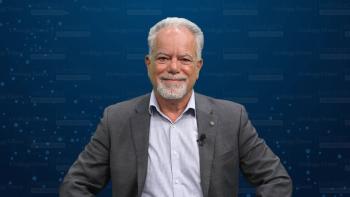
Fred Saad, CQ, MD, FRCS, FCAHS, discusses how recent clinical trials, including ARASENS and ARANOTE, have expanded treatment options for metastatic prostate cancer, highlighting the efficacy and safety of combining darolutamide with androgen deprivation therapy and/or chemotherapy while considering patient-specific factors to guide individualized treatment decisions.
Pedro Barata, MD, MSc FACP, discusses how recent clinical trials have advanced the treatment of metastatic prostate cancer, focusing on the efficacy of combination therapies involving radium-223, AR-targeted agents, and PARP inhibitors, while addressing safety concerns and considering optimal treatment strategies for different patient populations.
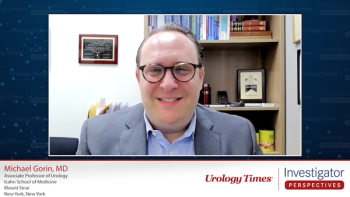
Michael Gorin, MD explores the PSMA imaging landscape, emerging agents with extended imaging windows, key copper-based imaging trials, and the anticipated impact of next-day imaging pending CLARIFY trial results.
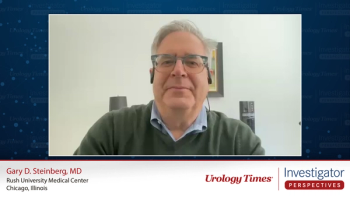
Gary D. Steinberg, MD, discusses recent clinical trial data presented at the AUA 2024 Conference, as well as practice-changing novel therapies for the treatment of intermediate and high risknon muscle invasive bladder cancer.
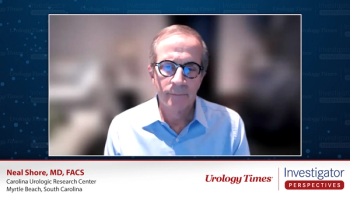
Neal Shore, MD, FACS, provides comprehensive insights on the evolving treatment landscape for patients with BCG-unresponsive non-muscle-invasive bladder cancer, with a focus on clinical research and treatment practices.
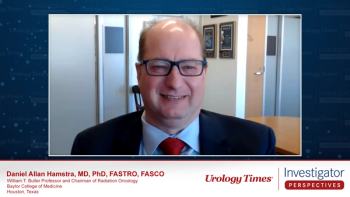
Daniel Allan Hamstra, MD, PhD, FASTRO, FASCO, details the currently available options for rectal spacers in patients with prostate cancer undergoing radiation therapy, and highlights the key clinical trial data leading to their approval for reducing toxicities and preserving sexual quality-of-life.
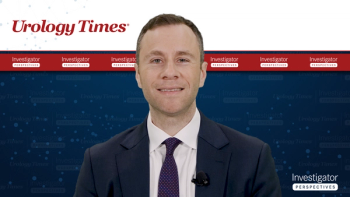
Expert urologist Michael S. Leapman, MD, MHS, considers how the Decipher Prostate Genomic Classifier and real-world data updates from the 2023 American Urological Association (AUA) Annual Meeting have impacted prostate cancer care.
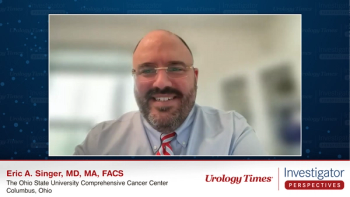
Eric A. Singer, MD, MA, FACS, an expert urologic oncologist, discusses recent data from KEYNOTE-057 presented at the 2023 American Urological Association (AUA) Annual Meeting, and offers clinical insights on treatment paradigms for non-muscle-invasive bladder cancer.
